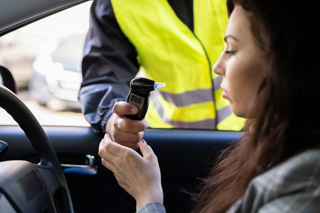One in 25 drivers with hayfever admit to having an accident as a result of driving after taking medication to fight their allergies, according to a new report.
The research by Confused.com found that 7% said their driving had been imparied while under the effect of medication.
Freedom of information data reveals some of the most common drugs that drivers have been pulled over under the influence of include class A-C drugs such as heroin and cannabis as well as prescription medication such as anti-histamines.
According to the Royal Pharmaceutical Society many prescription and over-the-counter medications for hay fever, can have side-effects.
Research from Confused.com found that in 2015, 2,090 motorists were charged with drug-driving, compared with just 870 in 2014.
With one in seven (15%) drivers admitting to drug-driving, the majority was taking prescription medication rather than illegal drugs.
In fact, British drivers are four times more likely to drive under the influence of legal drugs than their contraband counterparts – 12% to 3%, found the research.
Amanda Stretton, motoring editor at Confused.com says: “It’s worrying to see that so many motorists admit to driving while under the influence of drugs (15%) – both prescription (12%) and illegal (3%).
"This is particularly alarming given the current time of year, especially as more than a third (34%) of motorists admit to suffering from hay fever, with many resorting to medication to help combat the symptoms - despite the potential risks of drowsiness and reduced concentration levels.
“Our advice is simple, before taking any medication people should always read the safety leaflet before driving.
"Or if unsure they should ask the pharmacist or err on the side of caution and don’t drive, as road safety for themselves and others should be a top priority for any driver.”
Scrapcarcomparison.co.uk, whose network of buyers resell and salvage cars, added that hayfever symptoms can be alleviated by drivers making sure their air conditioning filters are regularly replaced.
A spokesman said: “Cabin or pollen filters are built in cars to help you breathe cleaner and pollen free air.
“They will clean the air that you breathe that comes into your car, remove allergens and help trap airborne particles like pollen and dust, stopping them entering the car.
“In spring and summer, the pollen counts are higher so the situation can be even worse for hay fever sufferers. A filter can clog every 12 months so ideally you should look to replace it from an allergy or bacteria perspective.
"A huge amount of the cars we see for resell or salvage look like they’ve never had replacement air filters in all their years.”



















Login to comment
Comments
No comments have been made yet.